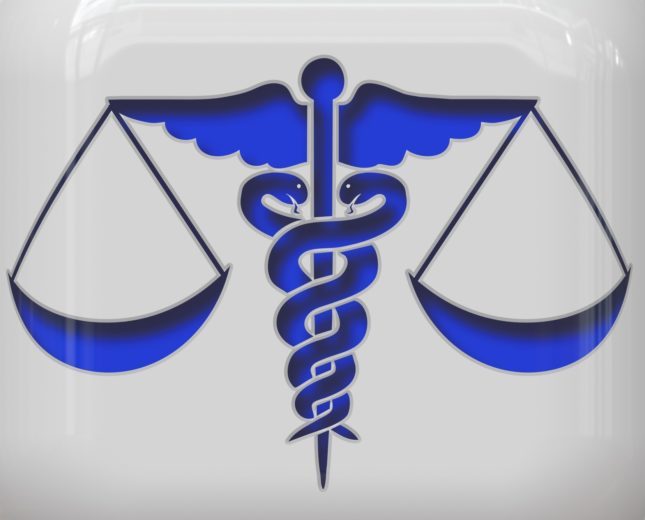Herbs and Spices
Bach Flower Remedies
Coffee
Cranberry Juice
Echinacea
Ginkgo biloba
Ginseng
Kava and Valerian
Evening primrose oil
St. John’s Wort
Yohimbe
(1). Bach Flower Remedies (5/4)
There are thirty-eight flowers that Dr. Bach says offer medicinal benefit. The number fourteen flower is heather. He doesn’t really specify which of the over six-thousand varieties of heather he is talking about but he says that heather is indicated for the treatment of self-centeredness and self-concern. Wow, my ex-wife’s name is Heather. Come to think of it, she needs treatment for self-centeredness and self-concern. There very well may be something to this flower stuff!
The number fifteen flower is holly. He says that holly is indicated for hatred, envy, and jealousy. I used to date a hot chick named Holly and other guys would experience envy and jealousy. Man, these flower remedies are right on the mark!
Edward Bach, MD, was actually a real doctor trained at the University College Hospital, London. He practiced as a surgeon and as a pathologist. He became interested in Homeopathy and developed what are still referred to as Bach’s nosodes. These are bacteria cultured from feces then mixed in water. This mixture is diluted to the point that the bacteria are no longer present. The idea is that one or more of these nosodes will cure any disease you can imagine.
Dr. Bach decided to get out of the diluting shit business … Gosh, I wonder why? He thought to himself, “Why don’t I get into the sweet smelling flower business?”
He thought and thought and he thought some more. Then he loudly proclaimed, “The scientific method is worthless. I can figure out what works on my own. I don’t need to do any of that silly ‘peer-reviewed study’ stuff.”
He proceeded to make himself sick with every malady known to man. He went out to his garden and collected a bunch of pretty flowers. He swallowed one flower and then another and then another until he got better. Voila! He figured out how to treat everything.
He died in (1936) but you can still go to the Dr. Edward Bach Center web site and figure out which flower remedy would be best for you.
Dr. Bach was not very good at botany or medicine but he was really good at being good looking. He also had a soothing voice and since he was a raving narcissist he made a convincing authority figure. I’m sure that the placebo effect thrived in his hands.
I think that if these treatments had been called Beethoven Flower Remedies, they would have been even more popular.

Edward Bach, MD
(2). Coffee (5/5)
When I was a second year medical student I took a pharmacology course. There was a section on recreational drugs. This section included marijuana, cocaine, heroin, amphetamine, barbiturates, alcohol, tobacco, and benzodiazepine. Every drug category listed its benefits and drawbacks.
At the end of this section there was a brief extra section on tea and coffee. One Saturday morning after a late night of study Ted and I were reviewing the class notes. We rarely went to class but we had a system where we paid some other kid to go and take notes for us. In any case, when we got to the section on coffee we read it line for line.
Up until this time I had been intentionally avoiding drinking coffee on a routine basis. I assumed there must be something wrong with it. After all, there is something wrong with all the other things that people consume in order to feel good. As we read each line we looked at each other with astonishment.
Coffee benefits
A. Increased alertness
B. Increased attention
C. Increased memory retention
D. Increased cognitive processing speed
E. Increased wakefulness
F. Increased concentration ability
G. Quickened reflexes
H. Improved test performance
What? Improved test performance! Are you kidding me?
We stared at each other for about three seconds in total amazement. Then, without talking we went to the car and drove to Target to purchase a coffee maker and several pounds of Folgers. From then until now, which is about twenty years, I have relied heavily on my daily coffee fix.
Oh, yeah, there is a list of downsides to coffee.
Coffee drawbacks
A. Benign withdrawal headache
B. Mild diuretic
C. Insomnia
When you are in medical school insomnia is not a down side and since we never planned on discontinuing drinking coffee withdrawal was not an issue. For all intents and purposes, the only down side to coffee was a little extra time at the urinal. Wow!
Make no mistake. You should start drinking coffee now and keep drinking it every day until you die. It won’t cure cancer or AIDS but it will make everyone awake and alert in the morning and it will do all those things on the list.
Coffee is good.
One additional note is that tea does everything coffee does but it is less potent. It also causes blood vessels and bronchioles in the lung to dilate. That’s why it is good when you have a chest cold.
Tea is good, too.
(3). Cranberry Juice (4/4)
Robert Henry says that cranberry juice is a great treatment for urinary tract infections (UTIs), kidney stones, common colds, ulcers, ear and respiratory infections, dental cavities, tumors, and blood cancers. It also reduces your bad cholesterol and helps with weight loss.
Innumerable benefits of Cranberry Juice consumption
In reality, the only thing that we know for sure that cranberry juice does is that it causes E. coli to have a more difficult time attaching itself to the walls of your urinary system. Therefore, it has a mild effect in preventing UTIs. It does not treat UTIs that are already present. It is also not very good at preventing UTIs in people with catheters or other causes of chronic infections.
There is some preliminary evidence to suggest that cranberry juice possibly also has these health benefits: anti-carcinogenic, fungistatic, inhibition of low density lipoprotein oxidation and prevention of formation of dental plaques. There is currently not enough research to confirm that any of these findings are true.
There is also a suggestion in the literature that cranberry juice will reduce or prevent kidney stones. The problem is that cranberry juice is high in oxalate concentration and could, therefore, provide an available substrate for kidney stone formation. If you are a urinary oxalate excreter you probably want to avoid large amounts of cranberry juice. Why Mr. Henry would advertise that people who have problems with kidney stones should drink cranberry juice is a mystery to me.
I’m surprised he didn’t say that cranberry juice is an ancient treatment that some Indian group has known for thousands of years.
He has authored numerous articles on this subject and at the bottom of one of these articles it said:
Robert Henry is a connoisseur in the field of medication.
I’m not sure what that means. Maybe it means that he doesn’t know anything about medicine but that he really appreciates it. Dr. Levy has a similar relationship with wine.
Cranberry juice isn’t all that cheap when consumed in large quantities, but it is relatively safe. Therefore, if you have a comfortably large pocketbook, occasionally get ordinary urinary tract infections, like the taste, and you are not an oxalate excreter then, OK, go for it.
(4). Echinacea (5/4)
A (2007) meta-analysis reported in Lancet combined findings from fourteen previously-reported trials examining Echinacea. They concluded that this herb can cut the chances of catching a cold by more than half and shorten the duration of a cold by an average of one and two-fifths days.
A (2005) placebo controlled double-blind prospective study of four-hundred thirty-seven volunteers reported in the New England Journal of Medicine concluded that Echinacea does not have clinically significant effects on infection with a rhinovirus.
The best medical journal in the UK says that it works while the best medical journal in the US says it does not. Hmmmm…
Echinacea has been around for a really long time and it continues to be one of the most popular herbal products. Numerous tribes of plains Indians in North America used it for snakebite, anthrax, and for relief of pain. So, what do you think?
Does it work?
Does it cure the common cold?
Certainly, plants can be a good source of medical treatments. Here is a list of some of the pharmaceuticals that are derived directly from plants:
A. Papaver somniferum- morphine
B. Digitalis lanata- digoxin
C. Salix alba- aspirin
D. Atropa belladonna- scopolamine and atropine
E. Pleurotus ostreatus- lovastatin
F. Tea- theophylline
G. Coffee- caffeine
H. Senna- ex-lax
I. Cinchona- quinine
J. Periwinkle- vincristine and vinblastine
K. Yew tree- taxol
L. Artemisia- artemisinin
In each of these cases, the plant product was studied and determined to have a genuine medical indication. My question is this; “How do we evaluate the hundreds or thousands of plants that have undergone numerous studies and are still not clearly indicated for anything?”
While medical science continues to study new and exotic plants and plant products for potential medical benefit, it is rarely the case that a plant which has been used extensively for over two-hundred years is all of a sudden found to be effective. For example, it did not take two-hundred years to figure out that willow bark was an effective analgesic. It did not even take a really well designed study. The effect was so clear that numerous studies quickly emerged. These studies largely agreed with each other. The conclusion that it works was soon widely accepted.
If Echinacea is effective for treating the common cold, then why would there be so many contradictory studies over such a long period of time?
The answer to this question seems rather obvious to me but it has been my experience that explaining it requires some tact. Since tact is something that is relatively foreign to me, I will need to try really hard to think of a way to explain it.
OK, here goes … Ahm … well, medical science is a huge and complex machine made up of thousands of people and institutions that are actively pursuing all possible avenues of treating medical illness every day. Anything that shows the slightest glimmer of hope will be studied. Things that don’t appear to be very promising will get less attention.
For a long time Echinacea has simply not appeared to be very promising. Now there is a well done prospective double blind study reported in the number one most prestigious medical journal in the world (Did you hear that all you UK blimey morons, the US kicks your ass when it comes to medical science!). This study shows no effect for Echinacea. This herbal product will likely not continue to get much legitimate study in the future. It most likely doesn’t work.
The organic, herbal, naturopathic, holistic, alternative, integrative, and complimentary health care industry will react a bit differently to this news. This industry is interested in marketing their products regardless of whether or not they work. They will cite technical criticisms of the New England Journal study and pretend that these criticisms mean the study is totally bogus. They will continue to do marketing studies that pretend to be scientific studies so they can keep making erroneous claims.
Under US law it is illegal to lie in an advertisement. However, it is not illegal to fudge data in a study that you are submitting for publication and reporting on a study that fudged its data is not, technically, a lie. So, if I make my living selling Echinacea, then I need to fund or otherwise encourage studies that support whatever marketing claim I want to make. Then, I can legally say, “According to a new study …”
Lancet is usually a fairly reasonable medical journal but they tend to suspend critical thinking a bit when it comes to integrative therapies. The study they reported was ridiculous. They took fourteen studies that used very different measures and combined the data in a meta-analysis. They got an answer that showed a benefit way beyond what any of the individual studies had shown. Under the best of circumstances a meta-analysis is a tricky procedure but when the studies involved use totally different methods then a meta-analysis is a statistically inappropriate technique.
The Lancet would never have allowed such a study if the issue was a new drug to prevent stroke or heart disease. Why would they let this study slip by?
Money. (You were warned that Dr. Levy has no tact.)
Did I tell you that the non-traditional medical industry is a trillion dollar per year industry? Oh, Lancet would never be influenced by that … yeah, right.
This industry makes its money by doing fake marketing studies on compounds that regular medicine discarded as not likely to be effective. I would even go out on a limb and suggest that the (2007) meta-analysis was intentionally fabricated. The well done double blind placebo controlled study in (2005) probably cut into their profits. The industry needed to fight back. Rather than doing a real study that might not produce the desired results they did an inappropriate meta-analysis.
But, how could a bogus study get published? Don’t they have credible scientific reviewers?
Of course they do but the reviewers can only make sure that the stats add up. They don’t send the data police out to make sure that you didn’t make stuff up. I could make up data and send in a paper with a well done statistical analysis and it would be published. Anyone can get something published. The real question is, “Will it be replicated?”
I predict that the (2007) Lancet article will not be replicated.
The amazing part is that there are enough idiots in congress or on medical school faculties or on the editorial boards of journals that allow and even promote this stuff. Oh, and believe me, the US is just as guilty as the UK. I was being facetious about us being better than them.
I’m not saying that anyone is directly taking bribes. No one is paying a lump sum to the editor of The New England Journal and then getting a bogus article published. It’s not that obvious.
Rather, there is a tremendous effort on the part of the makers of alternative medicine products to market their herbs. Humans are susceptible to this kind of marketing. Effective marketing exploits human frailty to sell product. As a result, Placebo Medicine becomes deeply ingrained throughout the very fabric of society and even a reviewer for The New England Journal pauses for a moment and thinks, “Hmmm … Maybe Echinacea does cure the common cold.”
So, how does the ordinary person who didn’t go to medical school decipher what is real and what is marketing?
The easiest way is to talk to your doctor. Beware that some doctors buy into the integrative stuff but even the ones who do can usually still give you some reasonable advice. Alternatively, my favorite source for herbal information is Herbal Medicines, Third Edition (2008) by Joanne Barnes, BPharm, PhD et al.
The bottom line is that you need to be a bit skeptical. Don’t believe everything at first glance. Unless you want to benefit from the placebo effect. If you do, then by all means, you should totally buy into whatever they are selling.

Echinacea
My fiancé likes Echinacea because it has pretty lavender petals. I even planted some in my garden especially for her.
(5). Ginkgo biloba (4/4)
Ginkgo biloba does not treat dementia and it does not treat Alzheimer disease. It improves microvascular circulation and may arrest the skin condition vitiligo. It treats intermittent claudication and possibly tinnitus. Again, it has no effect on dementia.
I think that the reason it is one of the most popular herbal remedies is that people think it will improve their memory. Dr. Levy recommends coffee.
Ginkgo biloba for Prevention of Dementia JAMA (2008)

Ginkgo biloba
(6). Ginseng (4/4)
Ginseng is thought to be an adaptogen (fights stress), an aphrodisiac (increases libido), and a stimulant. Of course, like all herbal remedies, it is purported to do everything else as well but these are the main claims.
In (2002) there were two studies that would seem to suggest that these claims are accurate. An animal study was reported in Ann N Y Acad Sci. and a human double blind placebo controlled trial was reported in J Urol.
I’m pretty sure that ginseng is a mild stimulant and that the other claims are bogus. Nevertheless, these two studies look intriguing. The second study definitely has Asian names on it but the other one is someone named Murphy. Wait a minute, the second author is someone named Lee … hmmm. That could go either way. Hey, let’s keep an open mind.
I have erectile dysfunction secondary to having multiple sclerosis and my insurance does not pay for Viagra®. In fact, the price per pill just went up to twenty dollars and I would certainly be interested in an alternative.
Perhaps I should purchase some ginseng?
I’m sitting in my office writing this chapter and I honestly have a question in my mind about whether or not ginseng will improve my erectile dysfunction. My plan is to do some research and then go get some and conduct a very dirty little experiment.
After some investigation I have determined that the Korean Red Ginseng is considered to be the most potent for treating erectile dysfunction. There is a North American variety and an Asian variety that are also effective but Korean Red seems to be the “good stuff.” The dose that was studied was nine-hundred mgs three times per day or t.i.d. as we say in medicine.
I will go to the General Nutrition Center (GNC) and get some Korean Red, wait a minute, they did not specify the year. Perhaps, a (1997) would be best. In any case, I plan to consume twice the recommended dose and then have my fiancé over for dinner. I will report to you how it goes.
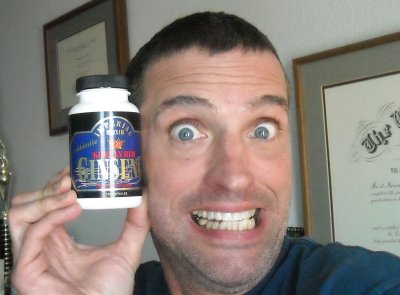
I went to the GNC but they did not have the true Korean Red. They unabashedly sell Siberian Ginseng even though this is a totally different plant that has nothing in common with Asian and North American ginseng. It was erroneously named because of a similar appearance but it is marketed side by side with the other ginsengs.
I went to Vitamin Cottage and they had twenty different kinds. Low and behold the most expensive was the real Imperial Korean Red Ginseng at $(27.95) for one-hundred of the six-hundred mg. capsules. I plan to take twelve-hundred mg t.i.d. prior to testing it out.

Whoops … major headache. I over-dosed and got a headache. I still would have had sex but circumstances prevented it. I will try again. This time I’ll use the nine-hundred mg t.i.d. dose. This is still higher than the dose that is recommended on the bottle. I’ll let you know what happens.
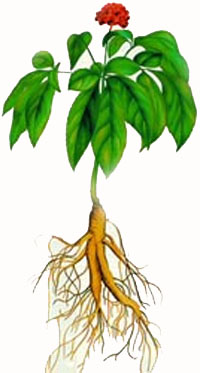
Ginseng
I had my morning coffee around (10)am. I took -600mg of pure Korean Red at 4:00pm. I took another -1200mg at I experienced a very mild headache and some heart burn. I had a very slight bit of nasal stuffiness and a mildly increased heart rate. I had a glass of champagne about one and one-half hours after taking the ginseng. We had sex about two hours after taking it.
I can usually please my fiancé even if I don’t take my Viagra® but it is a lot more difficult to maintain an erection. That is exactly what happened in this case.
It is now (12:03)am and I am still awake. My heart is still beating a little fast and I still have some mild heart burn. Usually, I am fast asleep after having sex in the evening.
Viagra® causes dose related heart burn, nasal stuffiness, and increased libido. It does not cause headache, nor does it change my heart rate.
I think that I had a large enough dose and experienced some mild side effects. Unfortunately, I did not have any change in sexual function at all.
Sorry folks but this was a very small study with no control group.
(7). Kava (1/4) and Valerian (5/3)
There is some evidence that Kava has a mild anti-anxiety effect and that it is mildly sedating. I have taken it before and it was my experience that it is sedating but not as potent as Benadryl® and certainly not as strong as Restoril® or Ambien®.
The main problem is liver damage. In fact, The National Center for Complementary and Alternative Medicine which recently changed it’s name from alternative to integrative (NCCIM) no longer funds studies to investigate this herb due to health concerns and The US Food and Drug Administration (FDA) has issued a warning that using Kava supplements has been linked to a risk of severe liver damage. In addition, Germany and the UK have banned imports of this herbal product.
Additional side effects include muscle spasm, involuntary muscle movements, scaly yellowed skin, and negative drug interactions especially with anti-Parkinson drugs.
Laura Starks is an Orlando woman who died from liver damage after ingesting Nutraceutical’s product Happy Camper. Check out this Eyewitness News (9) Special Report.
Here is the official FDA warning: fda.gov.
The placebo medicine industry often promotes that a product is both highly effective and totally free of side effects. My experience is that totally free of side effects probably means it is a true inert placebo. Effective remedies almost always have side effects. Kava is effective and it has side effects. Its effect may be mild but it is a real medicine.
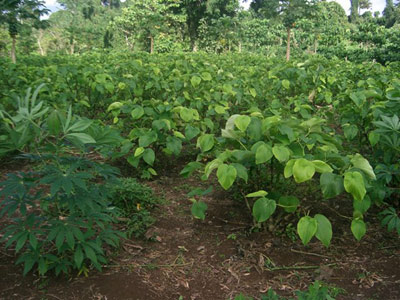
Kava
Valerian can cause mild side effects such as headaches, dizziness, upset stomach, and tiredness the morning after its use. It is claimed to be mildly sedating but scientific studies have had mixed results. I tried this herb a couple of times but could not definitely tell if it worked.
It is probably a real medicine with mild side effects and even milder effect.
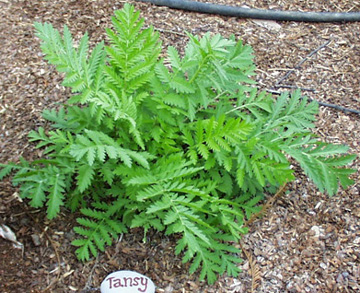
Valerian
(8). Evening primrose oil (4/4)
This stuff does not really do anything. The only reason I included it was because I like the name. I also like the names lavender and chamomile but they don’t do anything either.
(9). St. John’s Wort (3/4)
St. John’s wort (Hypericum perforatum) is one of the most studied medicinal herbs in recent years. It is widely used in Europe and heavily marketed for treating depression. The data seem to suggest that it may have a mild effect but two recent well done studies showed an effect equal to placebo. ( JAMA.(2002) Apr (10;(287)(14):(1807-14) and New England Journal of Medicine. (2002);(347)(25):(2046-2056).
What should you do?
The problem is that St. Johns Wort, like all herbal remedies, is a non-regulated product. There is no requirement to demonstrate safety or efficacy. The only requirement is to not lie on the label or in an advertisement but as I said earlier the report of a study that was a lie is not a lie.
Despite that, you can still go on-line and see numerous outright lies in advertisements. The FDA simply does not have the ability to police this sort of activity in any kind of effective way.
Furthermore, when studies compare ingredients between different brands they usually find huge discrepancies. It is literally impossible to purchase St. John’s Wort and have any confidence that the ingredients on the label accurately reflect what is inside.
Even if the labels are accurate, the real St. John’s Wort contains over one-hundred chemicals and we don’t really know what most of them do.
As a result there are numerous accounts of untoward effects. The most common adverse effects reported are gastrointestinal symptoms, dizziness, confusion, tiredness, photosensitivity, hair loss, sedation, and numerous drug interactions due to its induction of the cytochrome P(450) metabolic pathway.
When a plant is found to be an effective medicine it is analyzed and the active ingredient is isolated. Bayer® aspirin does not contain actual willow bark. We isolated salicylic acid and modified it to reduce the side effects and created a pill that contains a single pure compound. We studied it over and over so that we would be as informed as possible. All side effects are on the label and the content and dose are highly regulated.
The same is true for Prozac®. We isolated a naturally occurring brain chemical which is a re-uptake inhibitor of serotonin. We created a pill that contains a single purified molecule that is almost identical to its naturally occurring counterpart. We studied the heck out of it and we follow strict guidelines regarding labeling and content.
Which would you prefer, St. John’s Wort or Prozac®?
The cost difference, if your insurance doesn’t cover it, is about fifty dollars per month. If I had a choice between St. John’s Wort or nothing, I would consider it. Otherwise, I would go with the more reliable product.
If you are barely able to afford it then consider this; the cost of un-treated depression in terms of job loss, relationship stress, and death by suicide significantly outweighs the cost of a medication.
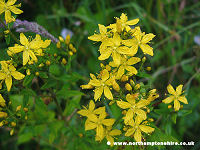
St. John’s Wort
(10). Yohimbe (4/4)
Yohimbine hydrochloride is a central alpha-2 adrenergic antagonist and it requires a prescription. Trade names include Actibine®, Aphrodyne®, Yocon®, Yohimex®, Yomax®. It is effective for erectile dysfunction (ED) and it has side effects.
Its effect on ED is mild and it has serious side effects that occur at a dose that is not very much above the therapeutic dose. Viagra® is a significantly better choice for the treatment of ED.
Yohimbe, not Yohimbine, (notice the subtle spelling change) is the product you will find at the health food store. It comes from the same plant and may have similar side effects in high dose but has not been shown to be effective for anything. Yohimbe is not an aphrodisiac. Nevertheless, it is often marketed as such.

yohimbenatrol
In conclusion, herbs and spices can be effective medications but, in contrast to all the hype, the ones that work well have already been discovered and we use them every day. The unregulated products that they sell at the Vitamin Cottage are either totally inactive like Siberian ginseng and yohimbe or their effects are mild such as valerian. Or, their effects are real and deadly like Kava.
Alternatively, a particular strain of valerian may have been an effective sedative many years ago. Maybe it was the wild strain before we started farming it. Its potency could have changed over time. Or, perhaps, they don’t mass produce the real potent strand for world wide consumption. Maybe they package and send us a bargain version. It isn’t regulated so we can’t know.
Even though this herb is not very potent, its reputation has grown over time. You could now sell sugar pills and call them valerian and you would make money.
In the early (1990)s our government attempted to regulate these products but the health food industry mounted a formidable assault on congress. The result was that any item classified as a dietary supplement is not required to demonstrate either safety or efficacy.
I sincerely hope that Mrs. Starks did not vote for a congressman or senator that helped pass this legislation.
(7-27-10) Post script: Acai Berry has become very popular as a weight loss supplement. It is claimed to contain unusually high levels of antioxidants. It does not actually contain particularly high levels of antioxidants and there is no evidence that acai berry has any effect on body weight at all.
What is interesting is that the distributors of this product created a fake news agency called Channel(5) HEALTH NEWS with anchors Jennifer Theuriau and James Field. The slim and beautiful Ms. Theuriau claims she was skeptical but performed her own study and lost twenty-six pounds! I’m thinking, “From where … her boobs?” Check her out: New(5) special reports (Sorry, this link was shut down by the courts.)
Register to receive notification of new content.
